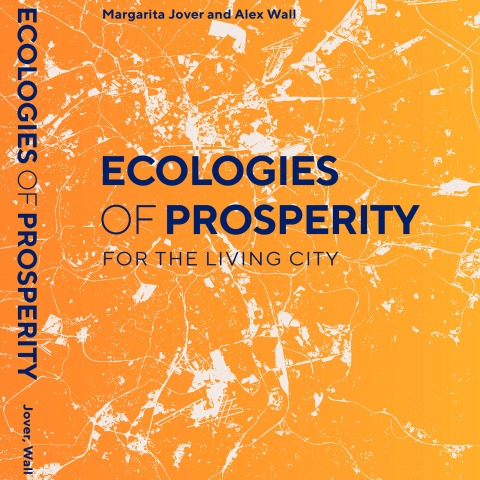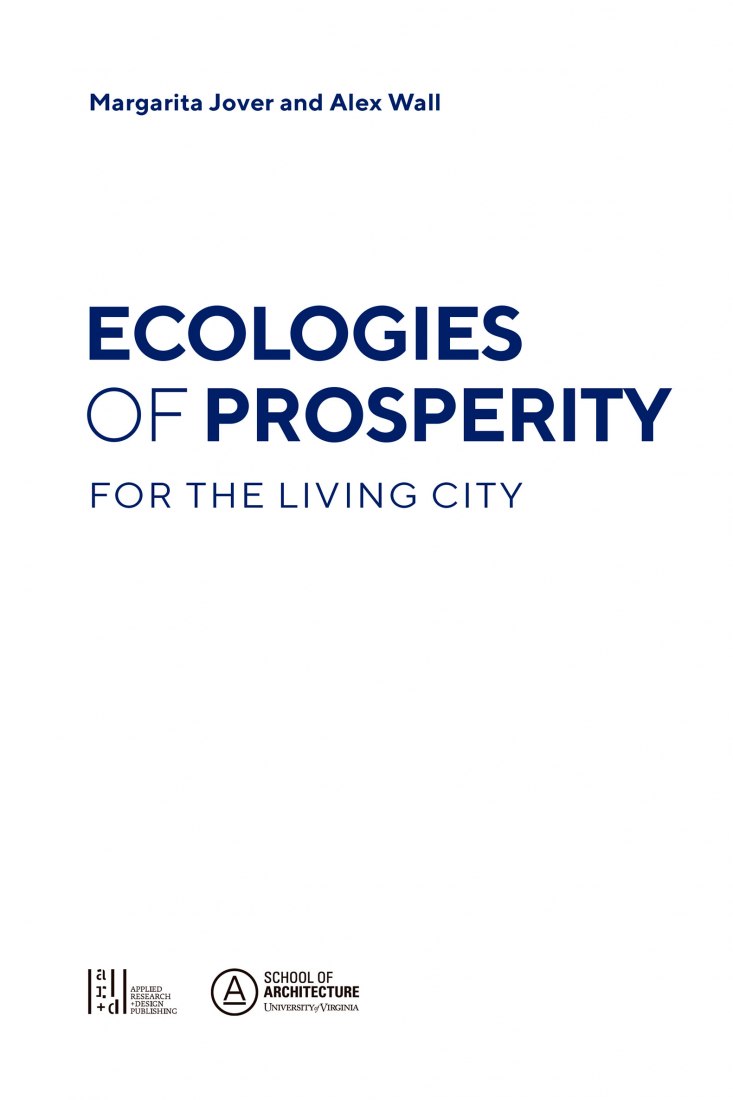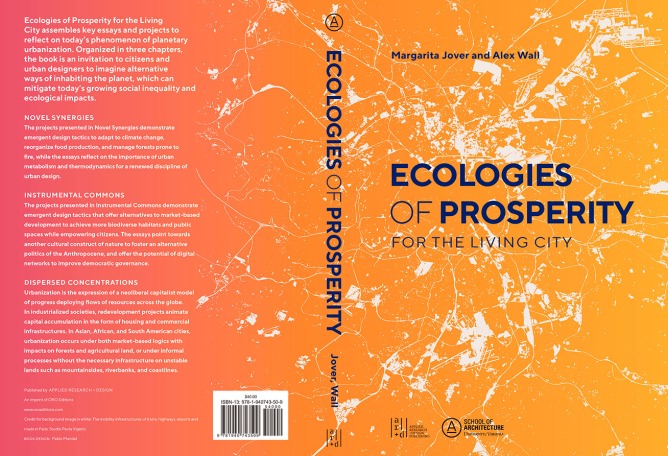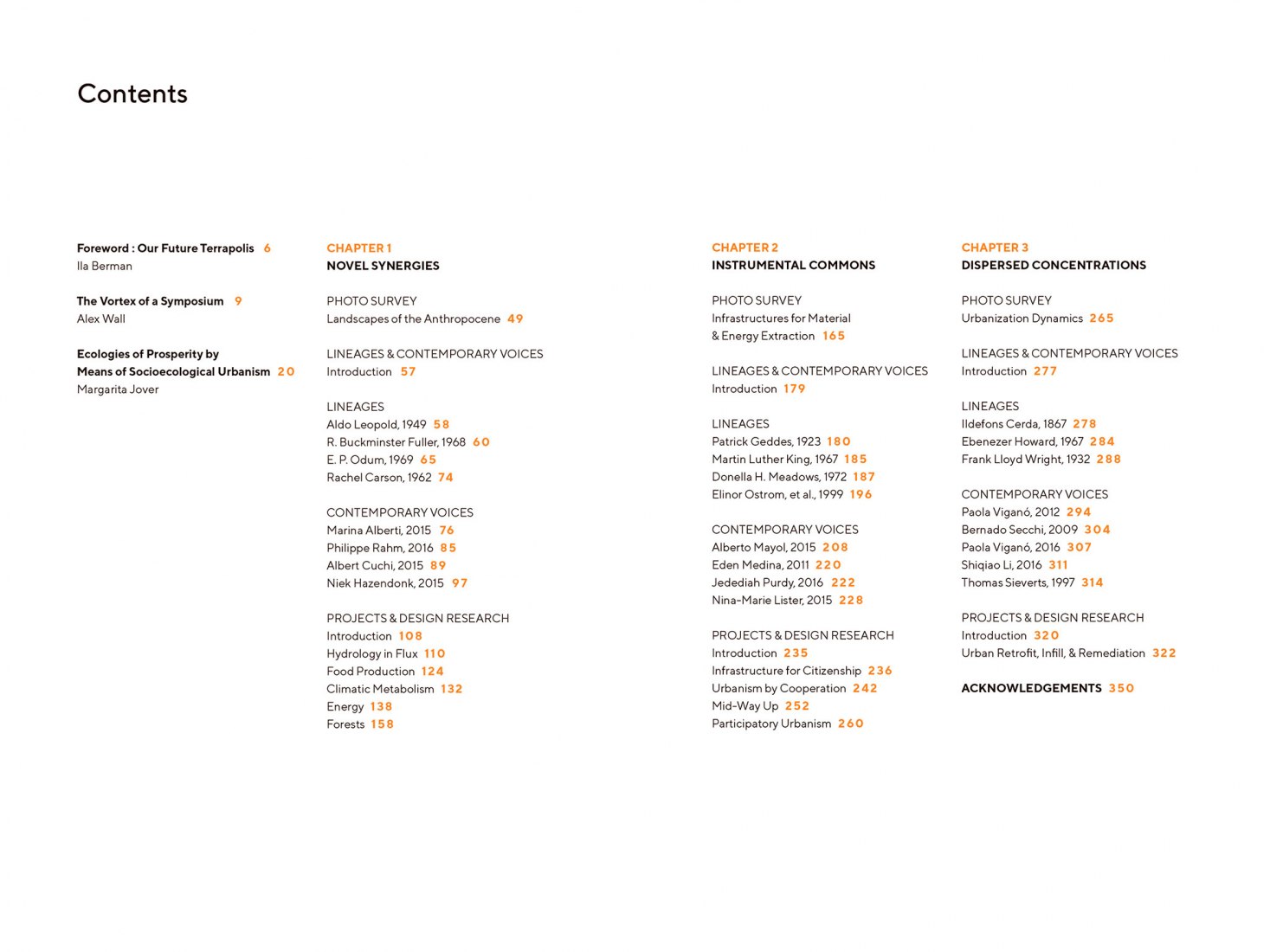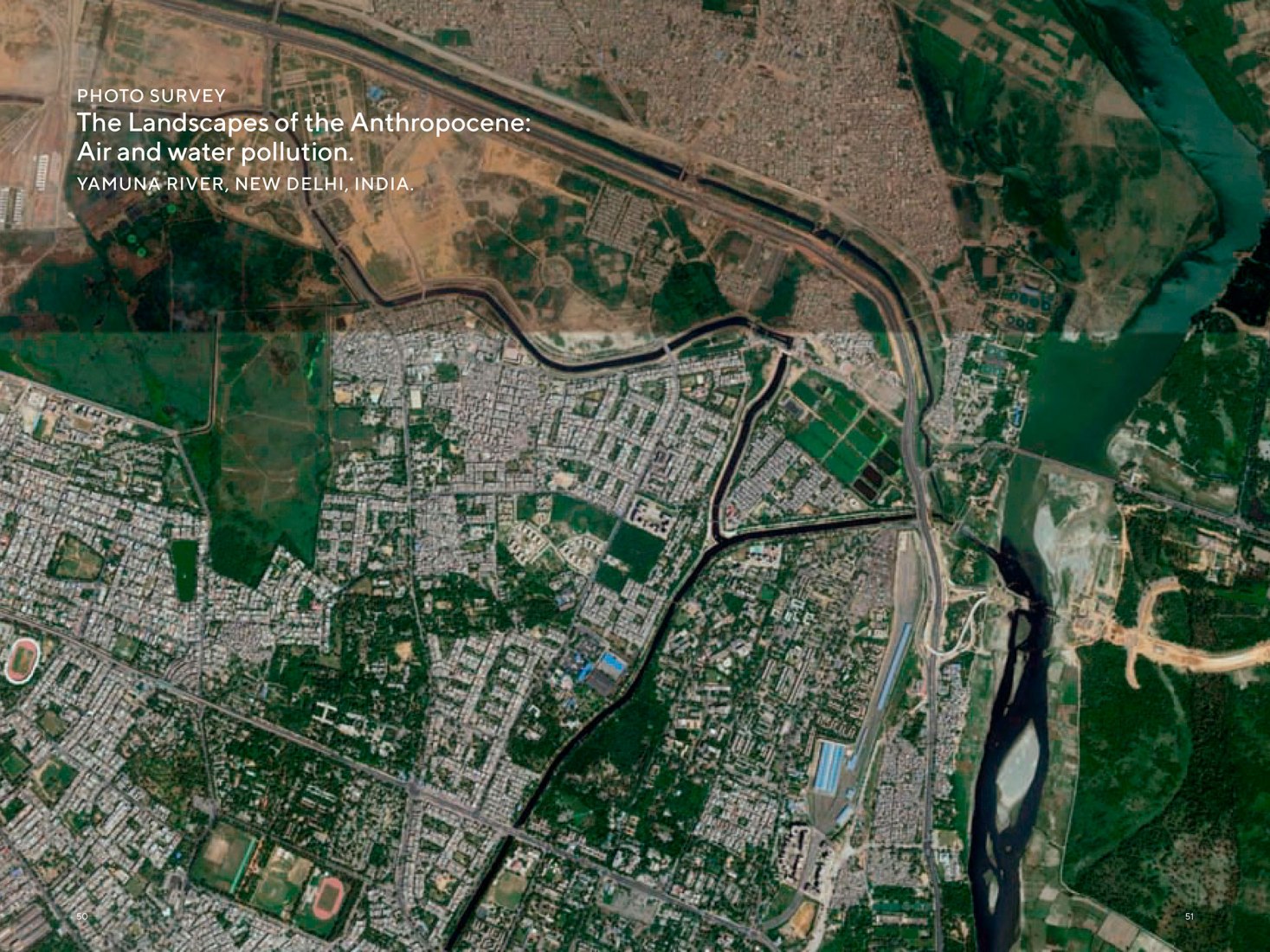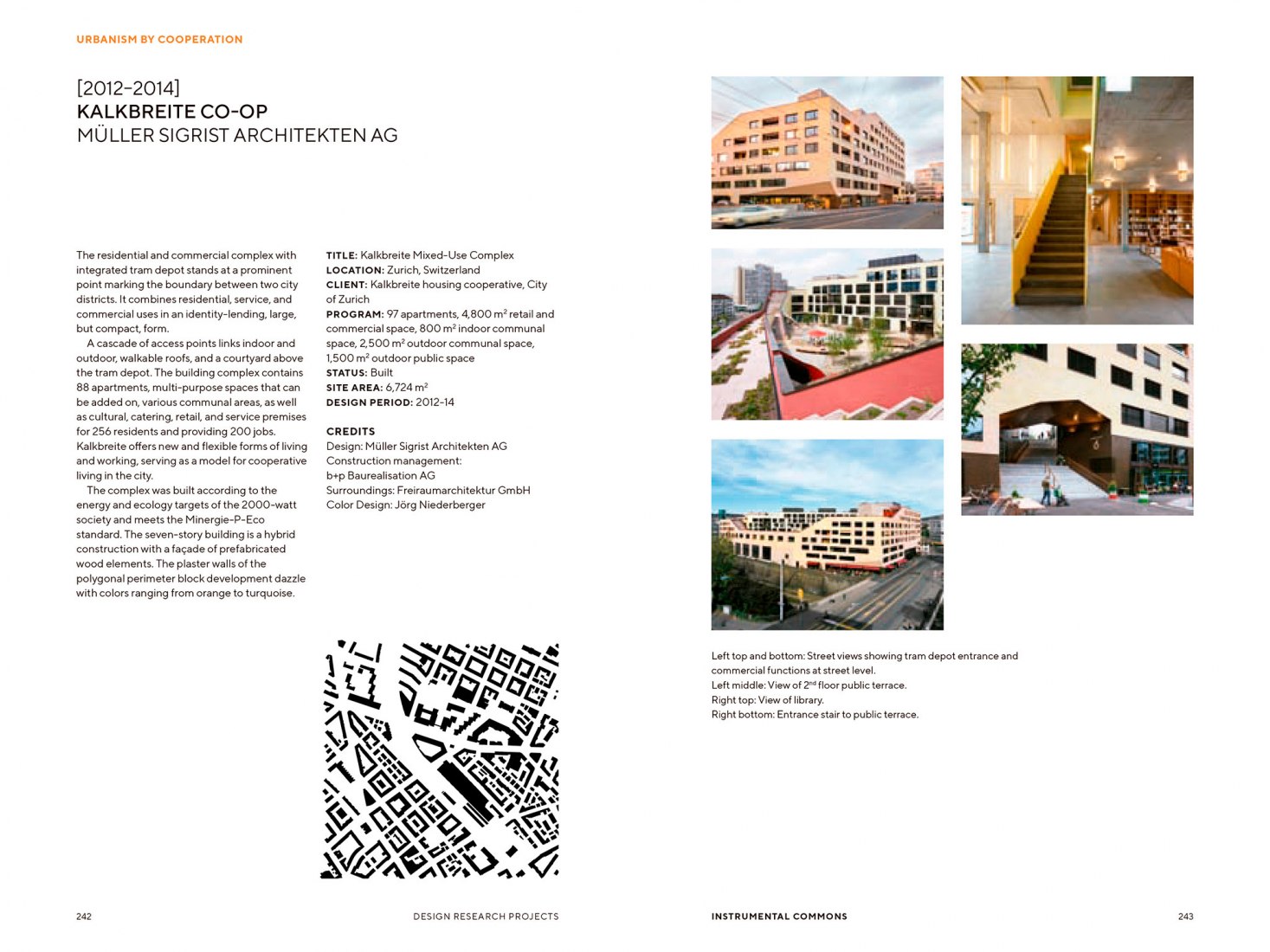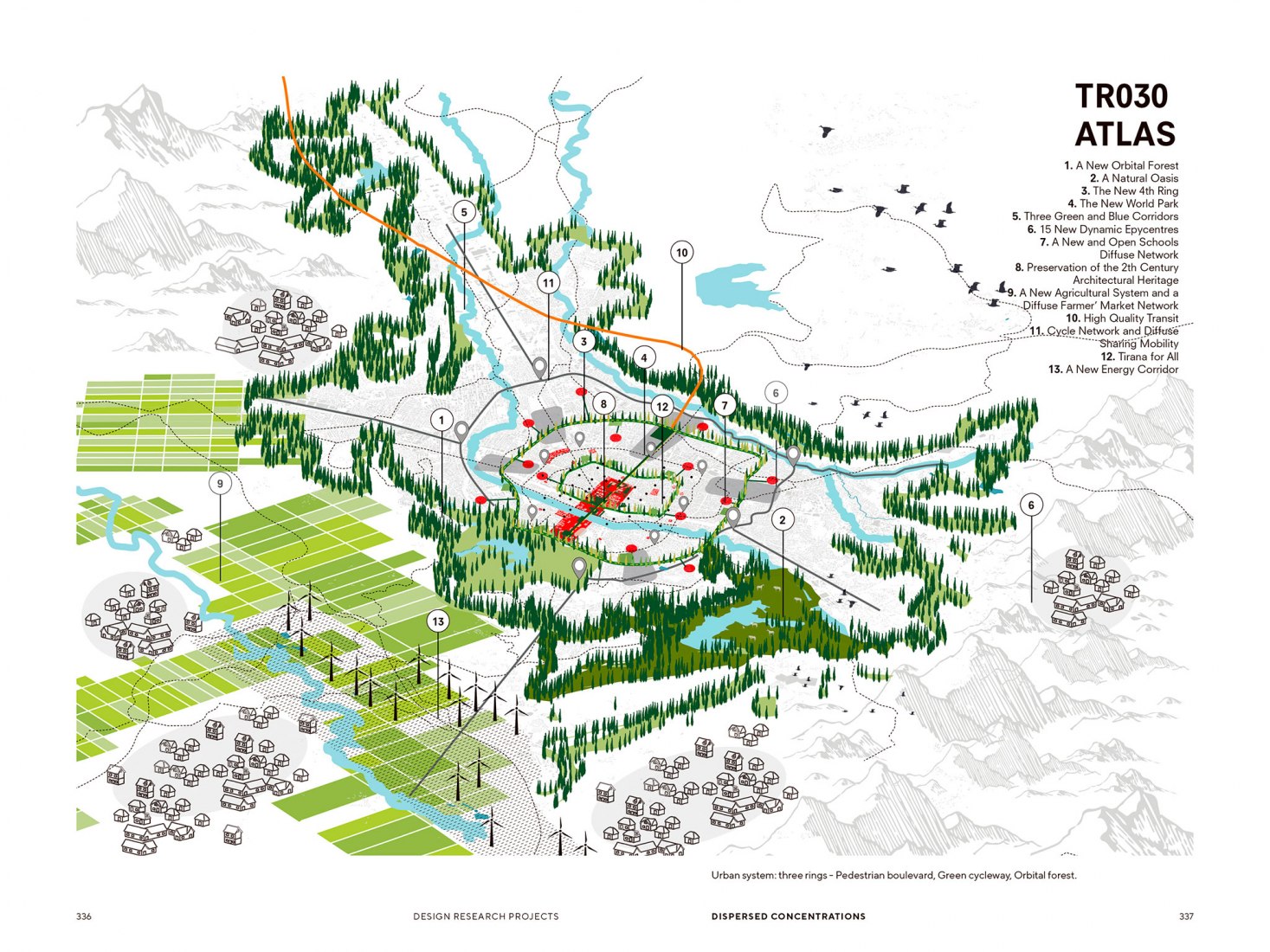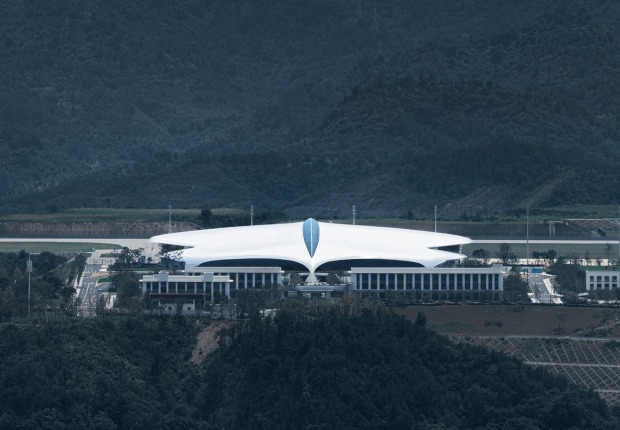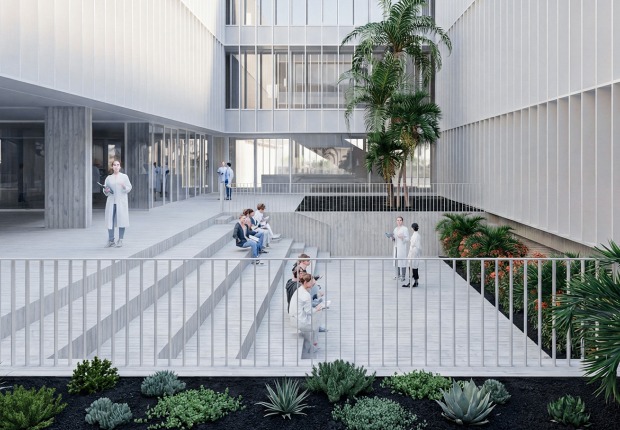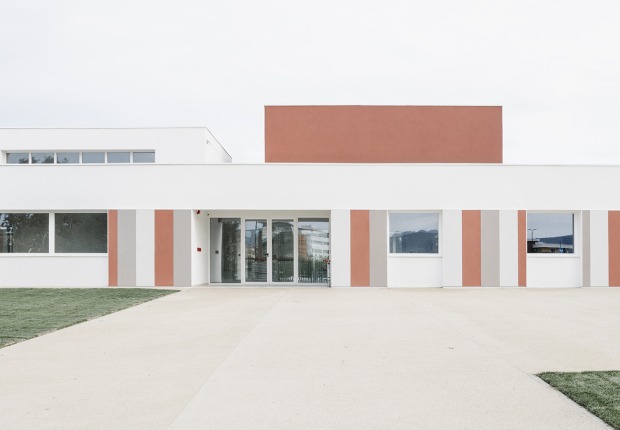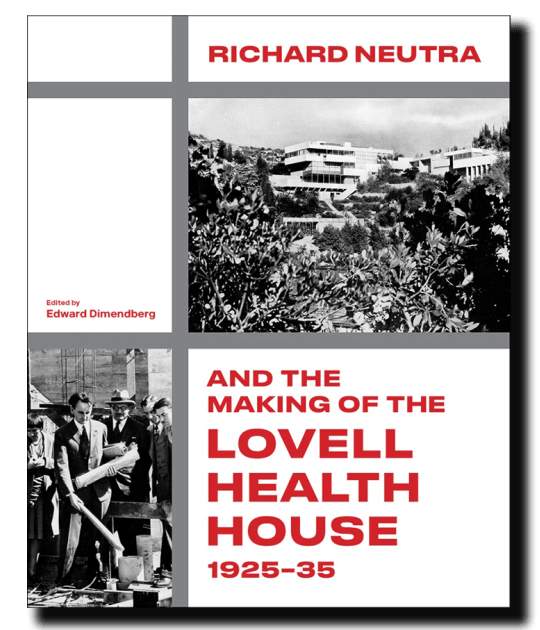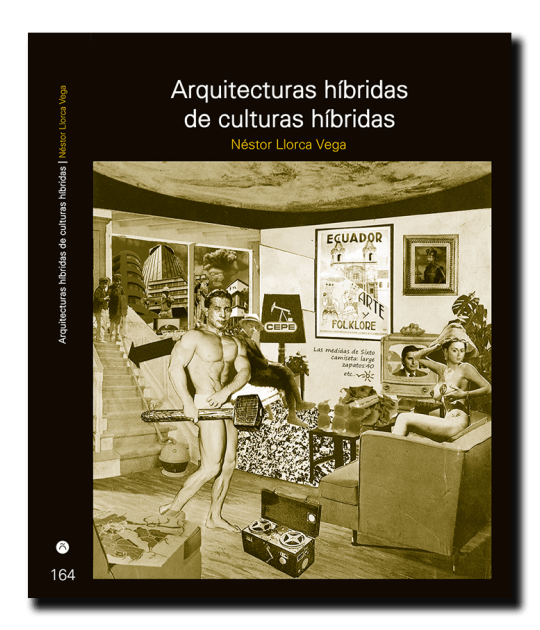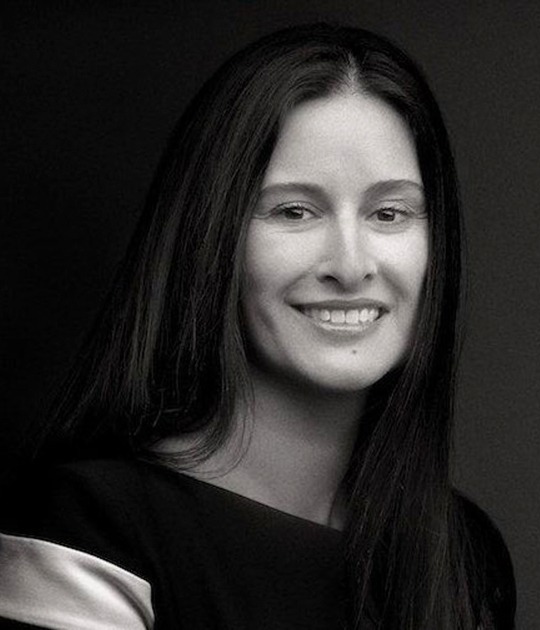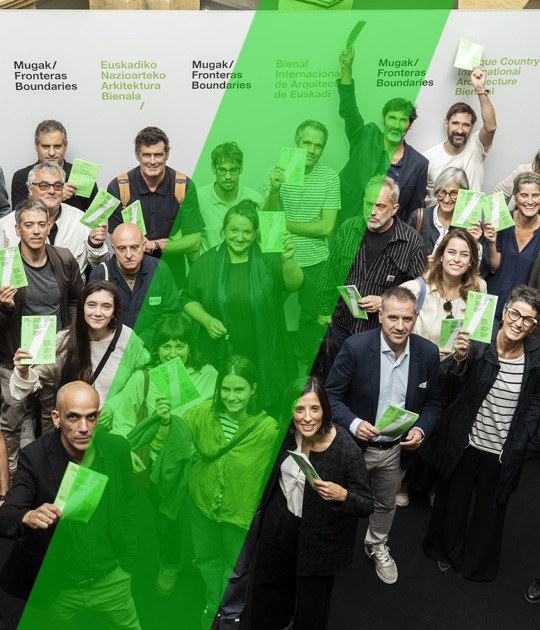A living city is animated by the life cycles of its human and non-human populations; but also by the cyclical metabolism of its material flows, many sourced from its region. For the authors, in the city of the near future, the cycles of these flows will be a visible part of everyday life, locally managed and supported.
In the book Ecologies of Prosperity, the term "ecology" refers to the interrelationships between economies that are large and small in scale, international and local, formal and informal, and which include sharing and the care of children and elderly in the home.
Ecologies of Prosperity embraces a multiplicity of exchange in which consumption becomes an index of new making and production in urban centers. Relating the commons to prosperity implies economic activities, whose outcome is distributed across a community and not concentrated in the hands of a few. Not monetary wealth, but social well-being.
Description by Margarita Jover and Alex Wall
The prosperity we speak of is not based on monetary accumulation but goods and benefits arising from a more socially and ecologically based economy. Rather than a lopsided economic gradient benefitting the few at the top, a new prosperity can be underpinned by diverse communities able to foster social capacity, empathy and consensus building to achieve their goals and solve conflicts.
Building social capacity supports the human disposition to cooperate, to do justice, and to fight for values. Directing their political voice upwards, these diverse communities are the building blocks for a more collaborative and sharing form of government. Their commons institutions are the bases of a “mid-way up” future, in which top-down capacities and bottom-up activism are fused. They employ local knowledge and innovation to generate user-based ideas in creating cities
NOVEL SYNERGIES
The projects presented in Novel Synergies demonstrate emergent design tactics to adapt to climate change, reorganize food production, and manage forests prone to fire, while the essays reflect on the importance of urban metabolism and thermodynamics for a renewed discipline of urban design.
INSTRUMENTAL COMMONS
The projects presented in Instrumental Commons demonstrate emergent design tactics that offer alternatives to market-based development to achieve more biodiverse habitats and public spaces while empowering citizens. The essays point towards another cultural construct of nature to foster an alternative politics of the Anthropocene, and offer the potential of digital networks to improve democratic governance.
DISPERSED CONCENTRATIONS
Urbanization is the expression of a neoliberal capitalist model of progress deploying flows of resources across the globe. In industrialized societies, redevelopment projects animate capital accumulation in the form of housing and commercial infrastructures. In Asian, African, and South American cities, urbanization occurs under both market-based logics with impacts on forests and agricultural land, or under informal processes without the necessary infrastructure on unstable lands such as mountainsides, riverbanks, and coastlines.
